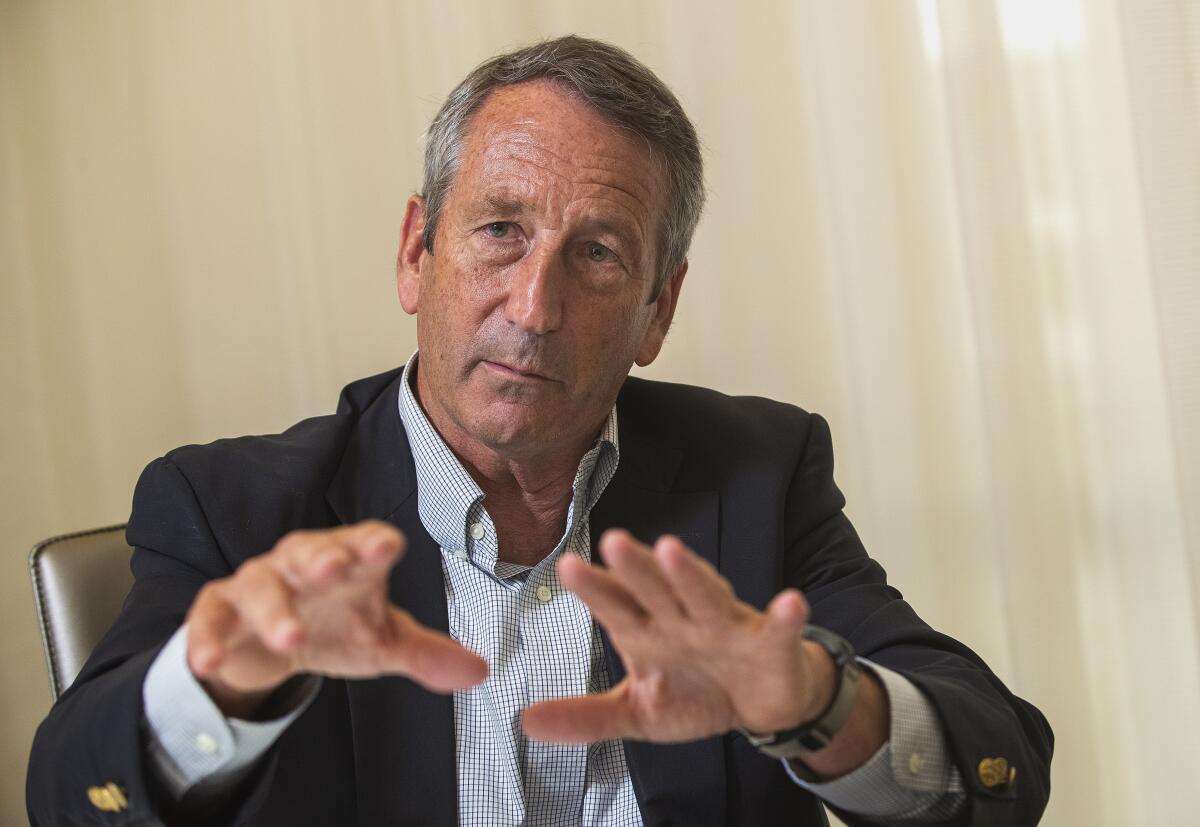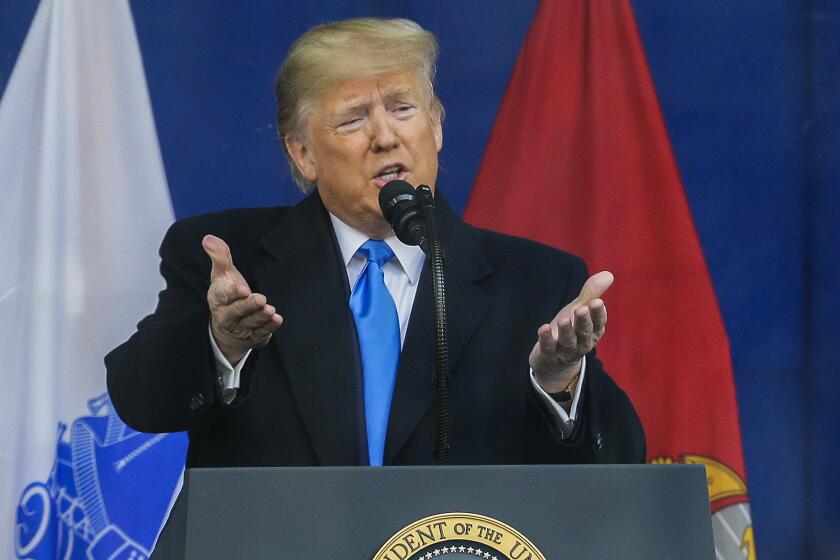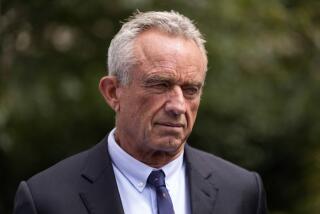Republican Mark Sanford ends his campaign to challenge Trump in 2020

CONCORD, N.H. — Mark Sanford dropped his challenge to President Trump for the Republican presidential nomination on Tuesday, saying the focus on impeachment has made it impossible for his campaign to gain traction.
“You’ve got to be a realist,” Sanford said outside the New Hampshire statehouse. “What I did not anticipate is an impeachment.”
The former South Carolina governor and congressman announced his decision to suspend his campaign on the eve of televised impeachment hearings in the U.S. House. He centered his bid on warnings about the national debt, but said the impeachment effort hurt his campaign.
“It was a long shot, but we wanted to try and interject this issue, how much we’re spending, into the national debate which comes along once every four years,” Sanford said. “I don’t think on the Republican side there is any appetite for a nuanced conversation on issues when there’s an impeachment overhead.”
Mark Sanford is trying to raise an alarm about the national debt and beat Trump in the GOP primary. But some Republicans want to talk about disloyalty, or Martian treasure.
Sanford’s departure from the race is the latest blow to the struggling “Never Trump” movement that has failed to attract a marquee GOP challenge for Trump this cycle. The only major options available for Never Trump Republican primary voters are now former Massachusetts Gov. William Weld and former Illinois Rep. Joe Walsh. Sanford did not commit to supporting either of the challengers’ campaigns Tuesday.
“I give him credit for taking a shot, for trying really,” said Bill Kristol, a director of Defending Democracy Together, a 501(c)(4) anti-Trump conservative group. “So few Republicans have had the nerve to step up at all.”
Weld, in a statement, said Sanford’s “voice in the primaries will be missed.” In an interview, Walsh said he never understood why Sanford entered the race.
“This isn’t about the debt and this isn’t about tariffs and it’s not about any issue,” Walsh said. “Trump’s unfit. It’s an emergency, and that’s the only reason you get into a primary against a sitting president.”
What are the public impeachment inquiry hearings about? Who’s who? What are the terms you need to understand?
When Sanford floated a bid over the summer, some people who have known and worked with him for decades questioned whether the whole campaign was a publicity stunt. Joel Sawyer, Sanford’s longtime gubernatorial spokesman and press secretary, said in July that while Sanford’s commitment to fiscal restraint is deeply engrained in his persona, it was matched by his desire for publicity and limelight.
The 59-year-old Sanford won three terms for U.S. House in the 1990s, then two four-year terms as governor before an extramarital affair marred the end of his second term. But Sanford’s secret 2009 rendezvous to Argentina to visit his paramour while his in-the-dark gubernatorial staff told reporters he was hiking the Appalachian Trail, however, did not end his ability to win elections.
After a brief hiatus and a divorce, he returned to politics and won a special election to his old U.S. House seat in 2013, holding on twice more before his criticism of Trump led to a 2018 primary loss.
Sanford had carried over about $1.3 million from his U.S. House days to his presidential primary challenge to Trump, but his presidential campaign fundraising had been lackluster without the help of the prominent Republicans who boosted his past campaign efforts.
Sanford was less critical of Trump than the other primary competitors, though he warned voters in New Hampshire that Trump could become the modern-day Herbert Hoover, who was president when the Great Depression began. The point of his campaign, Sanford emphasized, was not to “bash Trump.”
Impeachment aside, Sanford’s campaign faced other hurdles as a handful of state parties canceled their primaries and other nominating contests, including in Sanford’s home state of South Carolina, ahead of Trump’s reelection effort.
But the noise of impeachment, not an election, is what drove Sanford from the race.
“Again, our campaign may be a casualty of this process, but there’s a much bigger casualty out there,” Sanford said Tuesday. “That’s debate on any subject out there other than impeachment.”
Trump had earlier labeled his primary competitors the “Three Stooges,” and each had struggled with fundraising, according to the latest campaign finance reports.
After Sanford departed the race, Walsh called for “one alternative to Trump, period.”
“I think Republicans and conservatives and independents need an alternative, one, and I think having the three of us in was just kind of confusing,” Walsh said.
More to Read
Get the L.A. Times Politics newsletter
Deeply reported insights into legislation, politics and policy from Sacramento, Washington and beyond. In your inbox three times per week.
You may occasionally receive promotional content from the Los Angeles Times.












